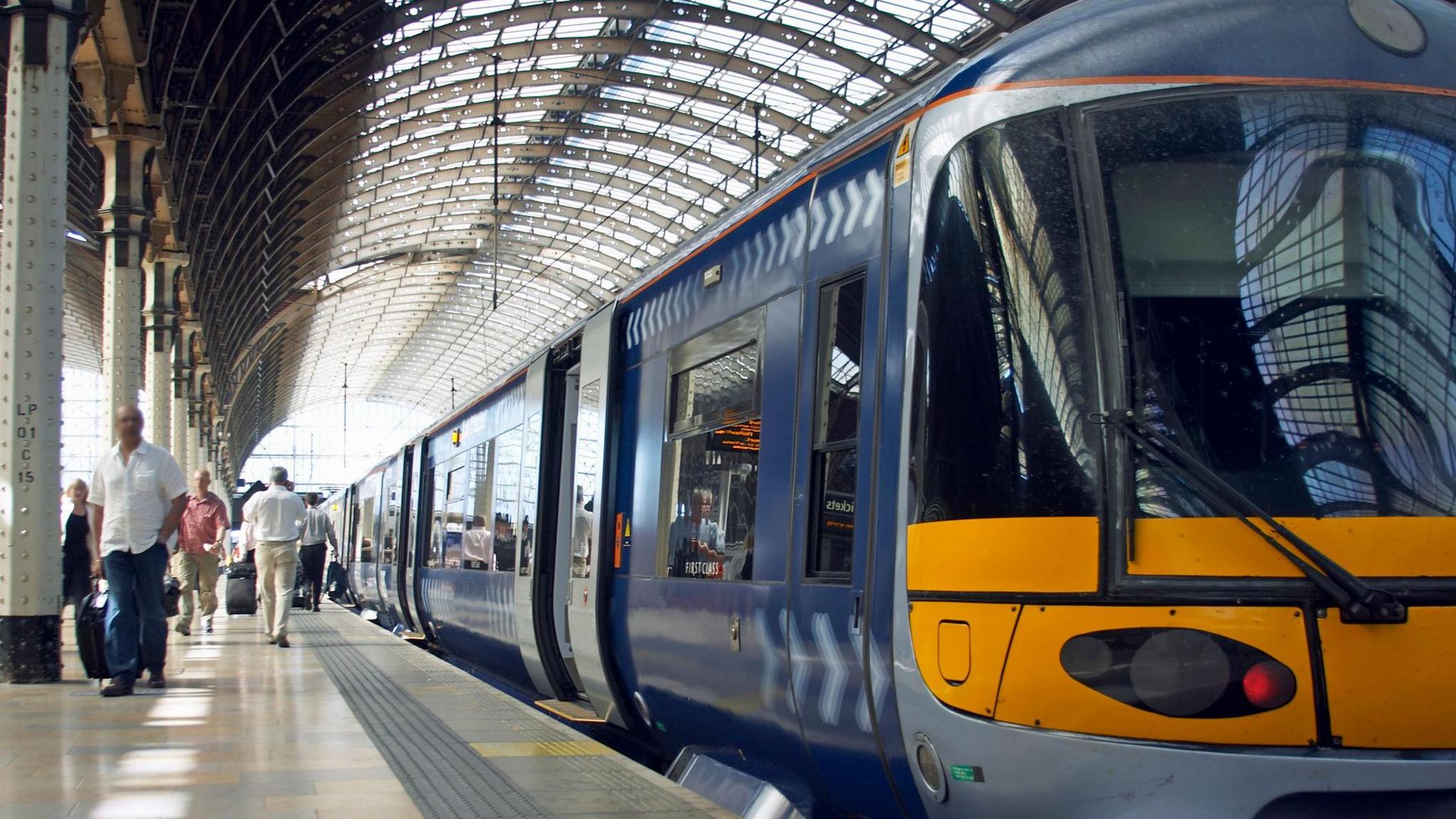Rail fares to be frozen in England next year

- Published
Rail fares in England next year are to be frozen for the first time in 30 years, the government has announced.
The freeze until March 2027 will apply to regulated fares, which includes season tickets and off-peak returns.
The most recent fare rise, in March 2025, was 4.6%.
Rail fares traditionally have gone up in January, based on the July rate of the retail price index (RPI) + 1% - although this formula has not always been followed.
The announcement comes days before the chancellor sets out the government's financial plans in the Budget, amid a focus on the cost of living.
The government also said the move is intended to "directly limit inflation" by holding down "a major component of everyday costs".
Since 2021, the annual increase has come in March instead of January.
A government source acknowledged it was possible unregulated fares would still rise, but insisted they usually followed regulated fares.
Unregulated fares increased by 5.5% in the year to March 2025, 1.1% above regulated fares - with a total increase in rail fares of 5.1% in that period.
The Rail Delivery Group, a representative body made up of the UK's rail operators, said the freeze would be "good news for customers".
"We want our railways to thrive, that's why we're committed to working with government to ensure upcoming railway reforms deliver real benefits for customers," a spokesperson said.
Since 1996, the government has regulated some train fares following the privatisation of British Rail.
The freeze marks the first point since then that fares will have been frozen, although there have been periods where price increases were below RPI, and a dip in prices following the financial crash in 2010.
About 45% of rail fares are regulated by the government in England, Wales and Scotland - but the freeze only relates to travel in England. The announcement also only applies to services run by England-based train operating companies.
Regulated fares include season tickets covering most commuter routes, some off-peak return tickets on long-distance journeys and flexible tickets for travel in and around major cities.
Train operators are free to set prices for unregulated fares, but they typically rise by similar amounts.
The government estimates that the move will save commuters on more expensive routes more than £300.
Chancellor Rachel Reeves said the freeze was being put in place to help ease cost of living pressures, and make "travelling to work, school or to visit friends and family that bit easier".
Transport Secretary Heidi Alexander said it was part of "wider plans to rebuild Great British Railways".
Great British Railways is a public body which is in the process of being set up, and is part of the government's plans to bring parts of the railway system into public ownership.
The government has said it will take over the running and management of the tracks and trains, "ending years of fragmentation, driving up standards for passengers, and making journey easier and better value for money".
The government has said part of its plans for the new body is to "gradually move away from annual blanket increases".
Labour said passengers had faced "relentless" fare increases every year under the previous Tory government.
However, shadow transport secretary Richard Holden said: "In government, the Conservatives kept fares on the right track with below-inflation rises and consistently called for no further hikes to protect hard-working commuters."